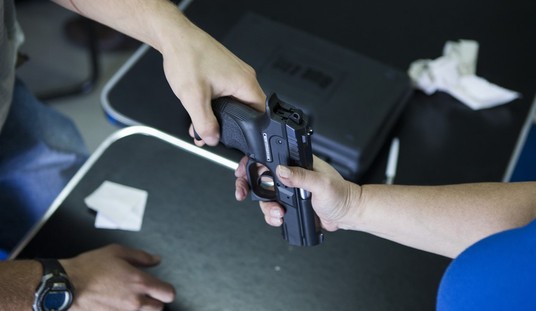AP Photo/Vincent Thian
When I sit here and tell people that New Zealand is making a mistake by passing knee-jerk gun control legislation, it’s easy for people to dismiss me. After all, I’m an avowed pro-gun partisan with absolutely no sympathies for any of gun control’s arguments. I’m biased and pretty proud of it.
However, I’m not the only one who thinks the nation may be making a serious mistake. Samara McPhedran, deputy director of the Violence Research and Prevention Program at Griffith University in Australia, thinks New Zealand might be as well.
WPR: Assuming the proposed ban becomes law, what are some obstacles that New Zealand might face as it seeks to implement and enforce it?
McPhedran: Based on Australia’s experience after 1996, as well as what happened in Canada after it made substantial changes to its gun laws in 1995, it is likely that New Zealand will face considerable issues of non-compliance.
Unfortunately, in Australia, an unintended negative consequence of the legislative changes was that the new laws directly fed a black market in illegal firearms. Now, a sizeable proportion of firearms recovered by Australian police and intelligence agencies in the context of serious and organized crime are the same types of firearms that were prohibited in 1996. Obviously, this is something New Zealand will want to avoid; how it may try to achieve this, and how successful it might be, remain unclear.
In practical terms, enforcement of Australia’s gun laws is a challenging, time-consuming and resource-intensive exercise. Freedom of information requests have revealed that Australia’s system of registration, along with the permitting process that is required to legally obtain firearms, takes up hundreds of thousands of hours of police time and costs tens of millions of dollars annually to administer. There have also been some independent evaluation reports that call into question the cost-effectiveness of Australia’s approach to firearms management as a way to prevent deaths. Moreover, a growing number of reports show serious failings in Australia’s registries in terms of their security, efficiency and accuracy. So even though people sometimes hold Australia up as an example of “what to do in gun control,” the details are quite different and reveal some important lessons about what not to do.
Gun control looks good on the surface, assuming you don’t care about gun rights. After all, if you restrict guns, you’re going to have fewer problems, right?
But as McPhedran notes, Australia’s black market didn’t miss a beat because of new laws.
That’s because the law will only apply to the law abiding.
While anti-gunners often argue that the same could be said of any other law, such as murder, the difference is that murder laws don’t prevent me from protecting myself from harm. I can take a life in self-defense, after all. That’s still legal in all 50 states, despite some anti-gunners’ best efforts.
Gun control, however, inhibits my ability to protect myself from crime while doing absolutely nothing to the criminals themselves.
Murder laws may not prevent murder, but they don’t empower criminals either. Gun laws do.
While New Zealand’s desire to act quickly is understandable, its efforts aren’t going to go the way it thinks. Especially since some criminals have already said they won’t disarm.
Instead of taking a step back and thinking about the totality of what’s being discussed, New Zealand is rushing into this headfirst. The nation’s leaders and citizens aren’t considering the ramifications on law-abiding citizens. Nor, frankly, do they care.







Join the conversation as a VIP Member